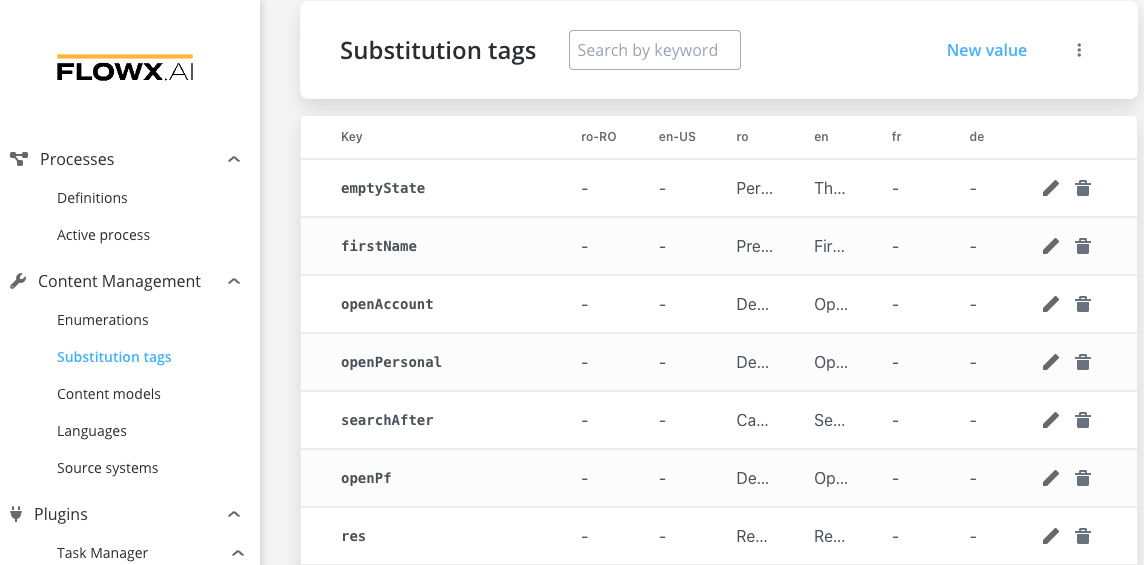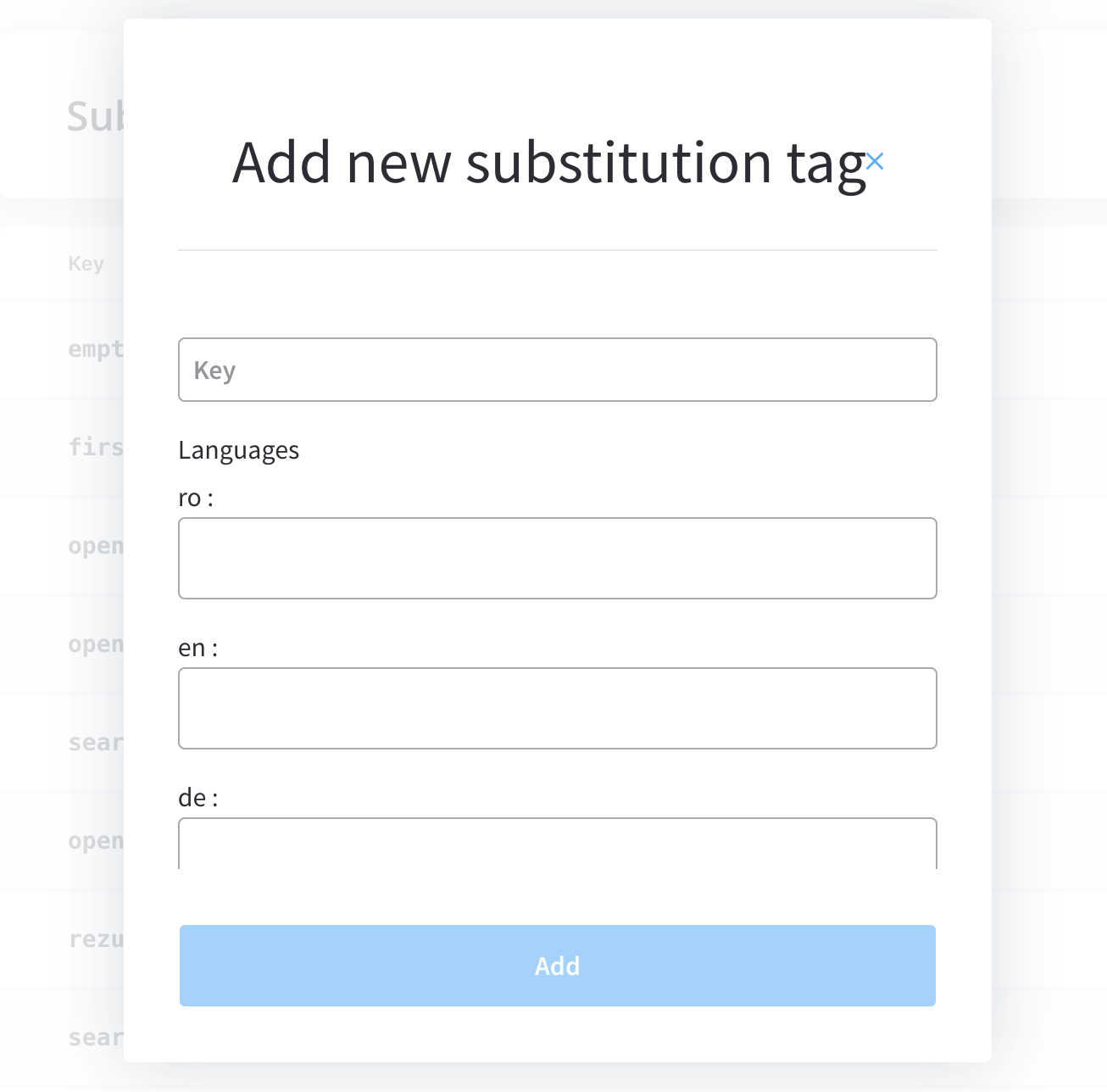Substitution tags
Substitution tags are used to generate dynamic content across the platform. As enumerations, substitution tags can be defined for each language set for the solution.

- Key
- Values - strings that are used in the end-user interface, according to the language set for the generated solution
- Edit - button used to edit substitution tags
- Delete - button used to delete substitution tags
- New value - button used to add a new substitution tag
- Breadcrumbs menu:
- Import
- from JSON
- from CSV
- Export
- to JSON
- to CSV
- Import
- Search by - search function used to easily look for a particular substitution tag
Adding new substitution tags
To add a new substitution tag, follow the next steps.- Go to FlowX Designer and select the Content Management tab.
- Select Substitution tags from the list.
- Click New value.
- Fill in the necessary details:
- Key
- Languages
- Click Add after you finish.

When working with substitution tags or other elements that imply values from other languages defined in the CMS, when running a process, the default values extracted will be the ones marked by the default language.
Getting a substitution tag by key
Example
Localizing the app
You must first check and configure the FLOWX.AI Angular renderer to be able to replicate this example. Click here for more information.
flxLocalize pipe is found in the FlxLocalizationModule.

